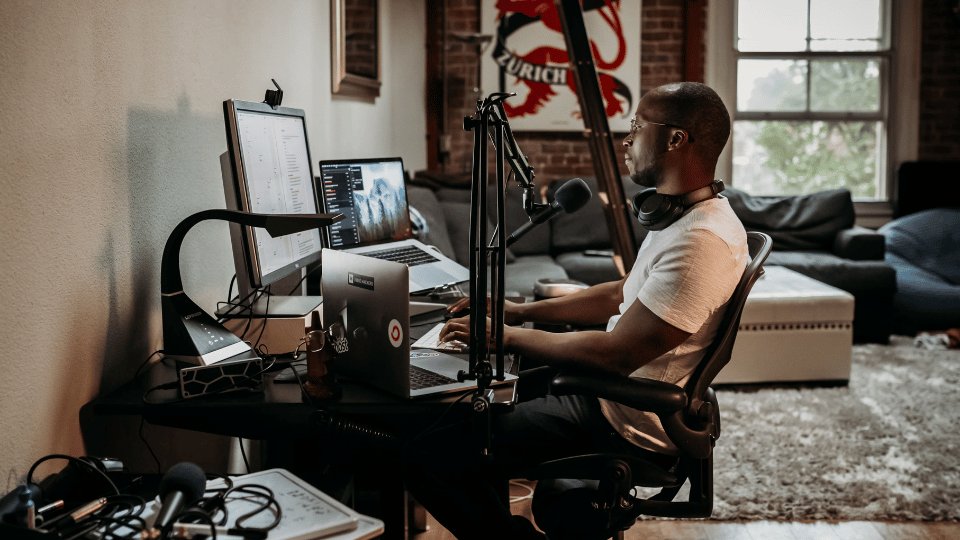Understanding the Role of a Radio Producer
A radio producer is responsible for overseeing the entire production process, from brainstorming ideas and creating compelling content to managing technical aspects such as audio editing and mixing. They work closely with hosts, reporters, and other team members to ensure that the final product meets the station’s standards and resonates with the target audience. A successful radio producer possesses a unique blend of creativity, technical expertise, and organizational skills.
Developing Your Creative Skills
One of the key skills that sets apart a great radio producer is their ability to generate fresh and engaging content. To develop your creative skills, consider pursuing courses or workshops in storytelling, journalism, or creative writing. These programs can help you refine your storytelling abilities, learn effective interview techniques, and develop a keen sense of what makes a story compelling. Additionally, immersing yourself in different forms of media, such as podcasts and radio documentaries, can provide inspiration and help you cultivate your own unique style.
Mastering Technical Skills
Alongside creative skills, radio producers must have a solid understanding of the technical aspects of audio production. Familiarize yourself with industry-standard software such as Adobe Audition or Pro Tools, which are commonly used for recording, editing, and mixing audio. Learning the basics of sound engineering, including microphone techniques, sound effects, and music production, will greatly enhance your abilities as a radio producer.
Pursuing Formal Education
While not always a requirement, formal education can provide a strong foundation for a career in radio production. Several universities and colleges offer programs specifically tailored to aspiring radio producers. For example, New York University’s Tisch School of the Arts offers a Bachelor of Fine Arts in Film and Television with a concentration in Radio Production. The Parsons School of Design, a part of The New School, also offers courses in audio production and podcasting. These programs often provide hands-on training, internships, and networking opportunities that can give you a competitive edge in the industry.
Online Training and Courses
If attending a traditional university is not feasible for you, online training and courses can be a convenient and flexible option. Yellowbrick, an online learning platform, offers a comprehensive Radio Production course in partnership with top institutions such as NYU Tisch and Modern Journalism. This course covers everything from scriptwriting and audio editing to producing a final radio show. Online courses can be a valuable resource for honing your skills and gaining practical knowledge at your own pace.
Building Experience through Internships and Volunteering
Gaining practical experience is crucial in the radio industry. Seek out internships or volunteer opportunities at radio stations, both local and online. These opportunities can provide hands-on experience, help you build a professional network, and showcase your dedication to potential employers. Additionally, consider creating your own podcasts or radio shows to demonstrate your skills and showcase your unique voice.
Networking and Industry Connections
Like many creative industries, radio production relies heavily on networking and building connections. Attend industry events, conferences, and workshops to meet professionals in the field. Join online communities and forums where you can connect with fellow radio producers, hosts, and industry experts. Building a strong network can open doors to potential job opportunities and collaborations.
Conclusion
In pursuing a career in radio production, it requires a combination of creative skills, technical expertise, and practical experience. Whether you choose to pursue formal education, online courses, or a combination of both, the key is to continuously develop your skills, stay updated with industry trends, and build a strong professional network. Remember, success in radio production comes with perseverance, dedication, and a passion for creating compelling audio content.
Key Takeaways
- Radio producers are responsible for overseeing the entire production process, from content creation to technical aspects.
- Developing creative skills through courses and workshops in storytelling and journalism is crucial for radio producers.
- Mastering technical skills, such as using industry-standard software and sound engineering, enhances your abilities.
- Pursuing formal education or online courses can provide a strong foundation and practical knowledge.
- Gaining practical experience through internships, volunteering, and creating your own content is essential.
- Networking and building industry connections can open doors to job opportunities and collaborations.
To further enhance your radio producer training, consider taking the NYU | Modern Journalism online course and certificate program offered by Yellowbrick. This comprehensive program covers scriptwriting, audio editing, and producing a final radio show, providing you with valuable skills and knowledge to excel in the industry. Embrace the opportunities available to you and continue to grow as a radio producer.




